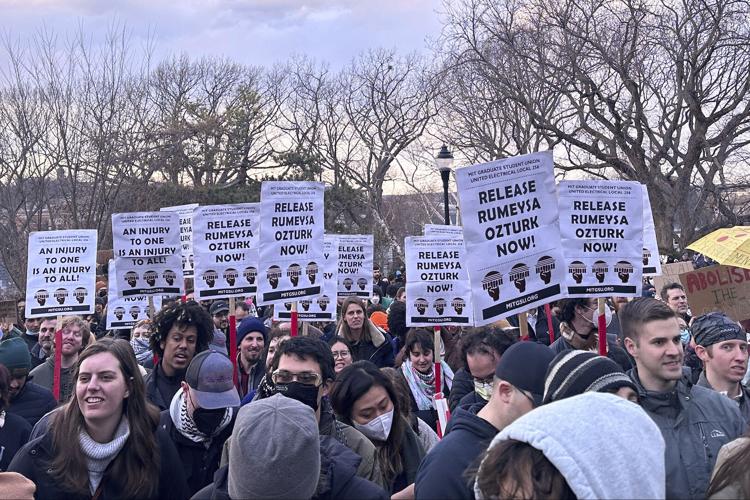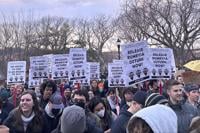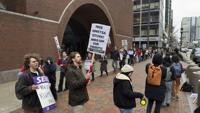A federal judge in Vermont has decided not to wait for the transfer of a Turkish Tufts University student from a Louisiana immigration detention center to schedule a bail hearing Friday, more than six weeks after she was arrested while walking along a street in a Boston suburb.
Rumeysa Ozturk, 30, is expected to appear remotely at the hearing in Burlington.
Her lawyers say her detention violates her constitutional rights, including free speech and due process. They have called for her release.
The U.S. Justice Department said an immigration court in Louisiana, which is conducting separate removal proceedings regarding Ozturk, has jurisdiction over her case.
U.S. District Judge William Sessions ordered Ozturk's transfer to Vermont, where she was last confined before she was taken to Louisiana. The government requested a delay, but a federal appeals court upheld his decision Wednesday, ordering Ozturk to be transferred to ICE custody in Vermont no later than May 14.
Sessions decided not to wait for the transfer, going ahead with the bail hearing.
Immigration officials surrounded Ozturk in Massachusetts on March 25 and drove her to New Hampshire and Vermont before putting her on a plane to a detention center in Basile, Louisiana. Her student visa had been revoked several days earlier, but she was not informed of that, her lawyers said.
Ozturk’s lawyers first filed a petition on her behalf in Massachusetts, but they did not know where she was and were unable to speak to her until more than 24 hours after she was detained. A Massachusetts judge later transferred the case to Vermont.
Ozturk was one of four students who wrote an op-ed in the campus newspaper, The Tufts Daily, last year criticizing the university’s response to student activists demanding that Tufts “acknowledge the Palestinian genocide,” disclose its investments and divest from companies with ties to Israel.
A State Department memo said Ozturk’s visa was revoked following an assessment that her actions ”‘may undermine U.S. foreign policy by creating a hostile environment for Jewish students and indicating support for a designated terrorist organization’ including co-authoring an op-ed that found common cause with an organization that was later temporarily banned from campus.”
A Department of Homeland Security spokesperson said in March, without providing evidence, that investigations found that Ozturk engaged in activities in support of Hamas, a U.S.-designated terrorist group.




